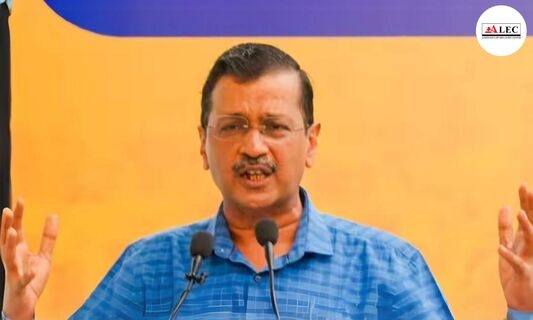“I demand elections to be held in November 2024 with Maharashtra elections” said former Delhi Chief Minister Arvind Kejriwal on 15 September.
Why in News?
After being released from Tihar Jail, Delhi, on bail granted by Hon’ble Supreme Court in liquor policy case, Kejriwal announced that he will be resigning from the post of Chief Minister of Delhi. He also demanded the elections to be held in November 2024 with Maharashtra elections. Though next general elections in Delhi are to be held in February 2025.
Analysis of legality of such Demand.
So the question is ‘Whether the Constitution of India gives any kind of power to any person to demand early elections ?’. Under Article 172(1) of the Constitution, the normal term of a State Legislative Assembly is five years, starting from the date of its first sitting after elections. However, the Assembly can be dissolved earlier in two scenarios:
- If the Chief Minister recommends its dissolution.
- If the Assembly loses the confidence of its members, often resulting in a vote of no-confidence.
Once the Legislative Assembly is dissolved, the Election Commission, established under Article 324 is constitutionally obligated to conduct fresh elections within six months. Also in Delhi, the Lieutenant Governor (LG) plays a crucial role in approving or rejecting any recommendation for dissolution of the Assembly under Article 239AA of the Constitution. The Chief Minister can recommend early dissolution to the LG, who may forward the request to the President of India who has the final say on the dissolution of the Assembly. So, coming to the present scenario if Kejriwal, while holding the office of Chief Minister of Delhi, would have requested for early elections, might be legally valid under the Constitution, provided his recommendation of dissolution of the assembly was accepted. Further, this recommendation of dissolution of the Assembly must justify his request either on political grounds (such as a need for fresh mandate) or administrative reasons (governance challenges).
Precedents for Early Elections.
There have been several instances in Indian political history where early elections were called for. These include cases where governments faced political instability, loss of majority, or other governance challenges. The Supreme Court has, in various cases, laid down guiding principles for the dissolution of legislative bodies. The most notable cases, such as the SR Bommai vs. Union of India (1994) and Rameshwar Prasad vs. Union of India (2006), have underscored that early dissolution must meet constitutional criteria and cannot be a tool for political expediency.
Conclusion.
Arvind Kejriwal’s request for early elections in Delhi is a legally valid option within India’s constitutional framework, provided the necessary procedural steps are followed. However, it is also subject to checks and balances, particularly through the involvement of the Lieutenant Governor and the Election Commission of India. There might be several legal implications of this demand involving questions about democratic propriety, the balance of power between the central government and Delhi’s elected government, and the constitutional mandates for conducting elections. As this situation unfolds, it may also set significant precedents for future requests for early elections in both states and Union Territories.
You can also read the latest judgment by visiting [Latest Judgment].
For more information, visit [ALEC Enquiry].

